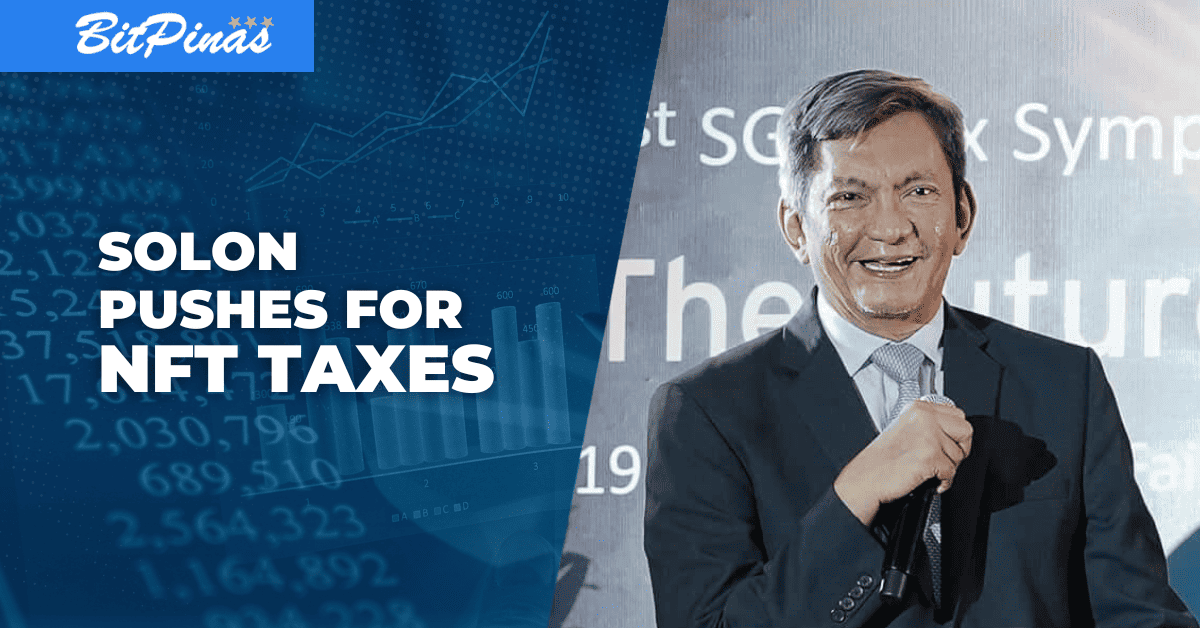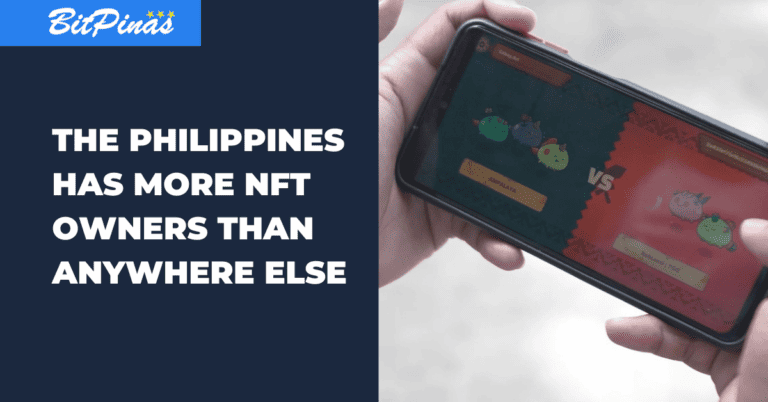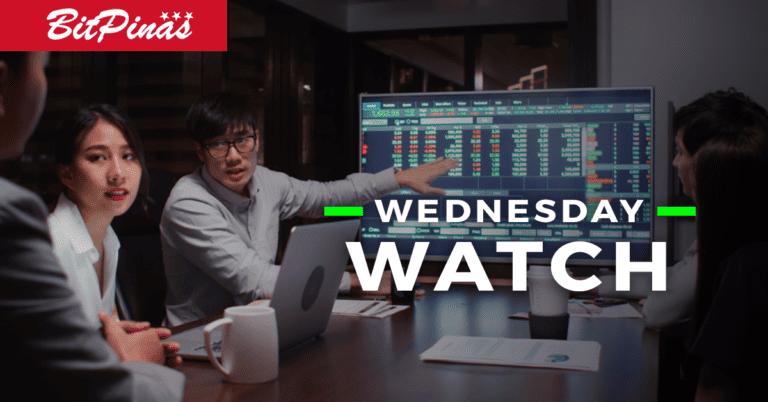Solon Will Form Working Group to Study NFT, Crypto Taxes
The economist-legislator also noted that the goods and services sold digitally “should not need any further legislation to be covered.”

As the 19th Congress opens, Rep. Joey Salceda, Chairman of the Ways and Means Committee, recently refiled the Digital Economy Value Added Tax (VAT) Law. According to him, the House Bill (HB) 372 was filed as a means to “close ambiguities” pertaining to Value Added Tax (VAT) and tax laws. Moreover, the lawmaker also expressed his plans to create a group that would study the possibility of taxing digital assets.
“It goes without saying that the digital economy should be subject to VAT, but we are unable to capture these revenues because of ambiguities in tax laws,” he stated.
Accordingly, Salceda enumerated in his explanatory note the digital services that should be considered “VAT-able.” The list includes “advertising, subscription-based services, and other online services that can be delivered through the internet.”
“The digital economy is growing rapidly, but digital economy taxation is falling flat. Imagine, in 2019, the digital economy tax collections of the BIR was at P45-billion. By 2020, it was still at around 45 billion. That’s hardly believable given the increase in digital transactions,” he further explained.
The economist-legislator also noted that the goods and services sold digitally “should not need any further legislation to be covered.” Further, he stated that he already proposed to the Bureau of Internal Revenue (BIR) that the regulator must establish a digital economy taxation service to have a dedicated unit for the growing digital sector.
According to Salceda, the VAT taxation on digital transactions plus a digital economy taxation service estimate–over the course of five years–to P226.5-billion in revenue.
To address the growing industry of fintech in web3, he stated his plans to create a House Technical Working Group (TWG) within the Ways and Means panel to study the possible taxations on digital assets— including non-fungible tokens (NFTs) and cryptocurrency, as well as digital gambling.
“I will create a TWP on Digital Asset Taxation within the Committee on Ways and Means to study whether these assets can be considered services, and therefore VATable, or should be taxed differently… Unlike underground or informal gambling, we can capture digital gambling revenues through the payment systems employed. So, I am also deputizing a TWG for Digital Betting and Amusements Taxation to make recommendations to the Committee” Salceda said.
Last March, following the growing industry of freelance and the mass adoption of the work-from-home setup due to the pandemic, Salceda told the Department of Trade and Industry and BIR that the country’s tax rules should be revised to “catch up”. (Read more: Rep. Salceda to BIR: PH Tax Laws Must Adopt to Increasing Online Freelancers)
Last year, the Philippine legislators approved House Bill No. 7425, a bill meant to amend sections of the National Internal Revenue Code of 1997 and parallel the level between traditional and digital businesses. Salceda, principal author of the bill, stated that the measure should not count as a “new tax” as it only “closes loopholes for large foreign corporations.” (Read more: House Bill 7425 on Taxing Digital Services in the Philippines)
In 2020, he also filed the House Bill 7864 or the “Blockchain Digital Technology Act” which aims to identify the uses of blockchain technology and encourage its use in the broader economy. (Read more: Key Highlights of the Blockchain Digital Technology Act of 2020)
This article is published on BitPinas: Solon Will Form Working Group to Study NFT, Crypto Taxes
Disclaimer: BitPinas articles and its external content are not financial advice. The team serves to deliver independent, unbiased news to provide information for Philippine-crypto and beyond.





